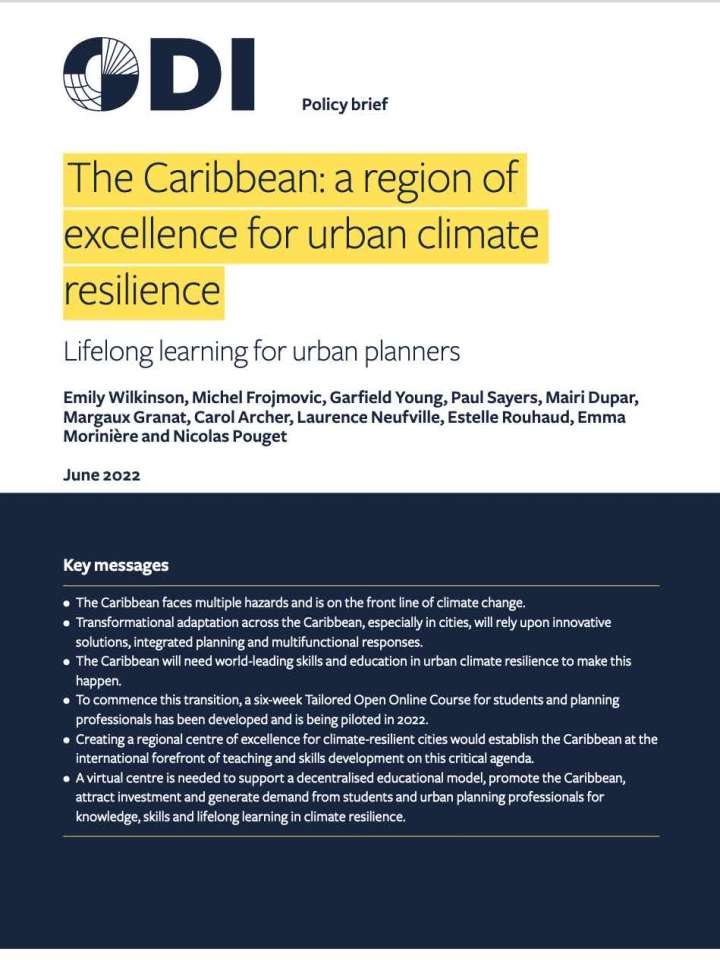The Caribbean: a region of excellence for urban climate resilience
This report projects the future of Caribbean urban infrastructure, and makes a case for the joint implementation of ecosystem-based and structural adaptation responses to reduce adaptation costs. By 2050, it is projected that 80% of the Caribbean population will live in coastal cities. The region’s urban infrastructure is particularly vulnerable to coastal risks, including coastal erosion and flooding, which are exacerbated by climate change. For some small islands and other low-lying areas, sea level rise poses an existential threat.
There is a need to look beyond immediate and near-term climate risk reduction, towards more transformational adaptation. This includes integrating climate change into building design and spatial urban planning decisions in ways that produce co-benefits for adaptation and mitigation. Innovation will be needed, including bringing together ecosystem-based and structural adaptation responses to reduce adaptation costs and provide multiple benefits across flood control, sanitation, water resource management, landslide prevention and coastal protection, all of which are critical adaptation options for Caribbean cities.
Explore further
